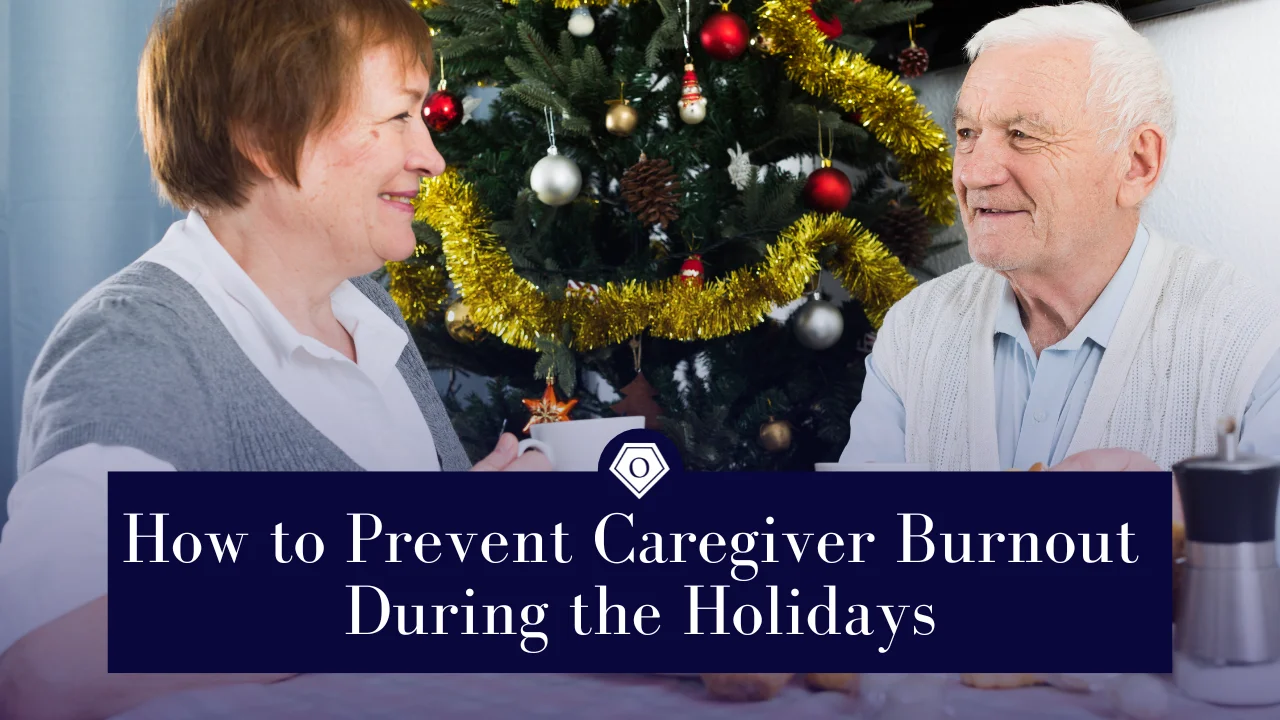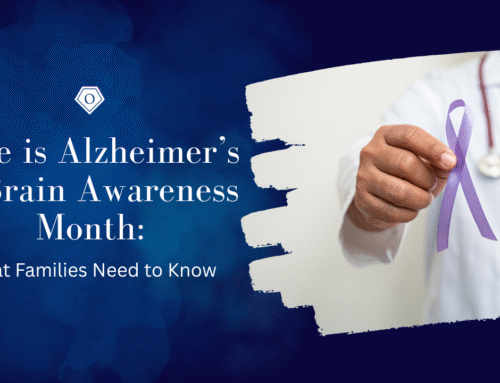The holiday season is a time of joy and togetherness, but for family caregivers, it can also bring added stress and overwhelm. Managing the needs of a loved one while navigating the demands of the season can make burnout feel inevitable. However, with awareness and a proactive approach, you can protect your well-being and truly enjoy this special time of year.
Signs of Caregiver Burnout
Burnout doesn’t happen overnight—it builds gradually. Recognizing the signs early is crucial for preventing more serious health issues:
- Physical Symptoms: Chronic fatigue, frequent illnesses, or changes in appetite or sleep.
- Emotional Symptoms: Feeling irritable, overwhelmed, or hopeless.
- Behavioral Symptoms: Withdrawing from social activities, neglecting personal responsibilities, or turning to unhealthy coping mechanisms like overeating or alcohol.
- Cognitive Symptoms: Difficulty concentrating or making decisions.
If you’re experiencing any of these signs, it’s important to address them promptly.
Tips to Stay Healthy During the Holidays
While caregiving can be demanding, there are steps you can take to manage stress and protect your health:
1. Simplify Your Holiday Plans
Let go of the pressure to make everything perfect. Focus on a few meaningful traditions rather than trying to do it all. Delegate tasks like cooking, decorating, or shopping to family members or friends.
2. Prioritize Self-Care
Make self-care a non-negotiable part of your day. Even 15 minutes for a walk, meditation, or a favorite hobby can help recharge your energy and improve your mood.
3. Set Realistic Expectations
Adjust your expectations to reflect your current situation. It’s okay to say no to commitments that feel overwhelming. Be honest with yourself and others about what you can handle.
4. Stay Connected
Don’t isolate yourself. Reach out to friends, family, or support groups to share your feelings and experiences. Sometimes, simply talking about your challenges can ease the burden.
5. Practice Mindfulness
Incorporate mindfulness techniques like deep breathing, journaling, or gratitude exercises to reduce stress and refocus on the present moment.
6. Take Advantage of Respite Care
Home health care services can provide temporary relief, giving you time to rest and recharge. Whether it’s a few hours or a full day, respite care allows you to take care of yourself while ensuring your loved one’s needs are met.
When to Consider Professional Help
Sometimes, the demands of caregiving exceed what you can handle alone, especially during the holidays. If you find yourself:
- Frequently overwhelmed or unable to enjoy activities you once loved.
- Experiencing persistent physical or emotional symptoms.
- Struggling to meet your loved one’s needs effectively.
It may be time to seek additional support. Home health care professionals can provide personalized care for your loved one, giving you the space to focus on your well-being.
Remember: You Deserve Support Too
Caregiving is an act of love, but it’s not one you have to face alone. By recognizing the signs of burnout and taking proactive steps to care for yourself, you’ll not only protect your health but also ensure you can continue providing the best care for your loved one.
If you need help this holiday season, our team is here for you. Contact us to learn more about our respite care and home health services. Together, we can make this season a little brighter for you and your family.
Dementia & Alzheimer’s Care
Onyx Home Care’s neurological disorder care is built around a system of support. This service includes skilled home care as well as a unique program that centers on the patient’s interests and stage of illness. Our goal is to see happy family members, patients and caregivers. Often times, caregivers feel remote. Our team includes each person in the home care process to provide inclusive care that helps the patient thrive.






